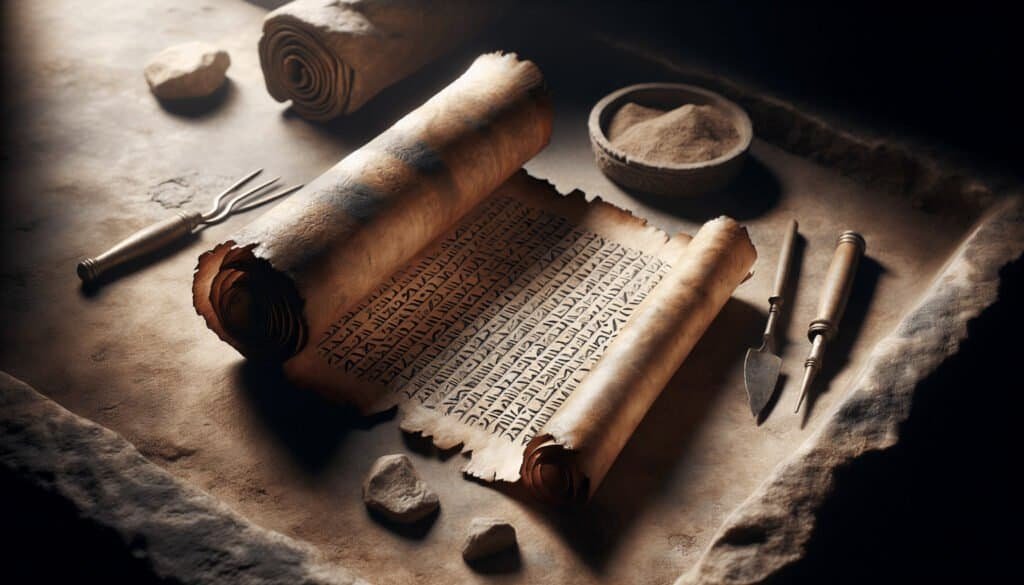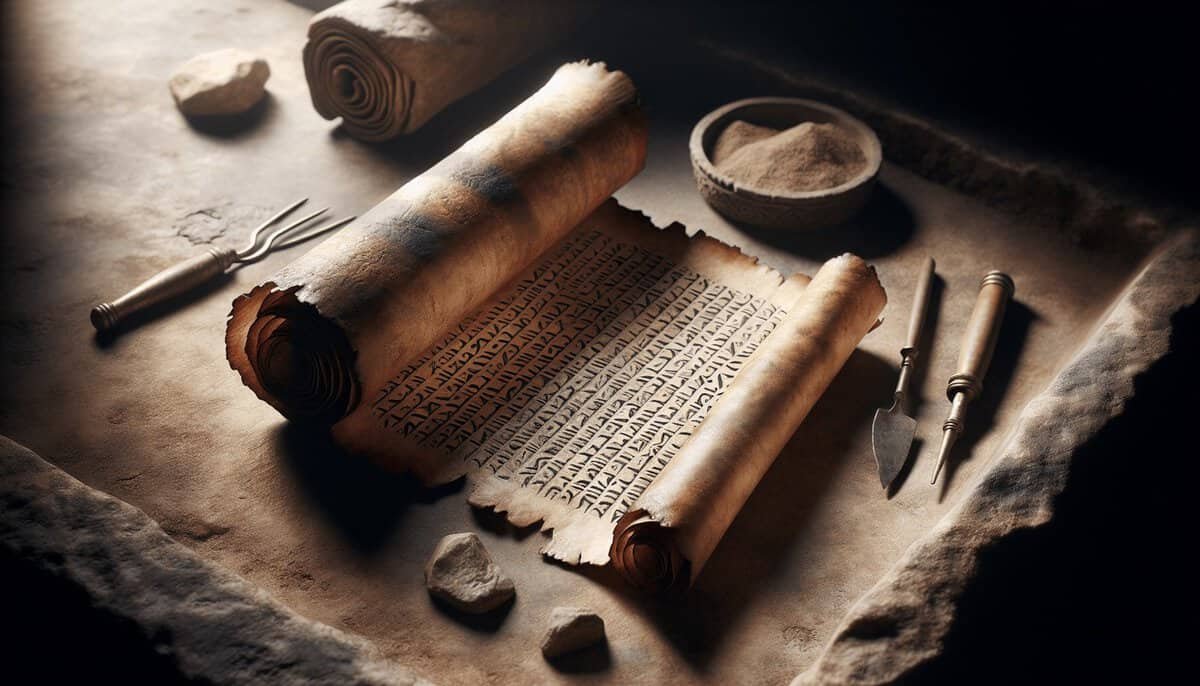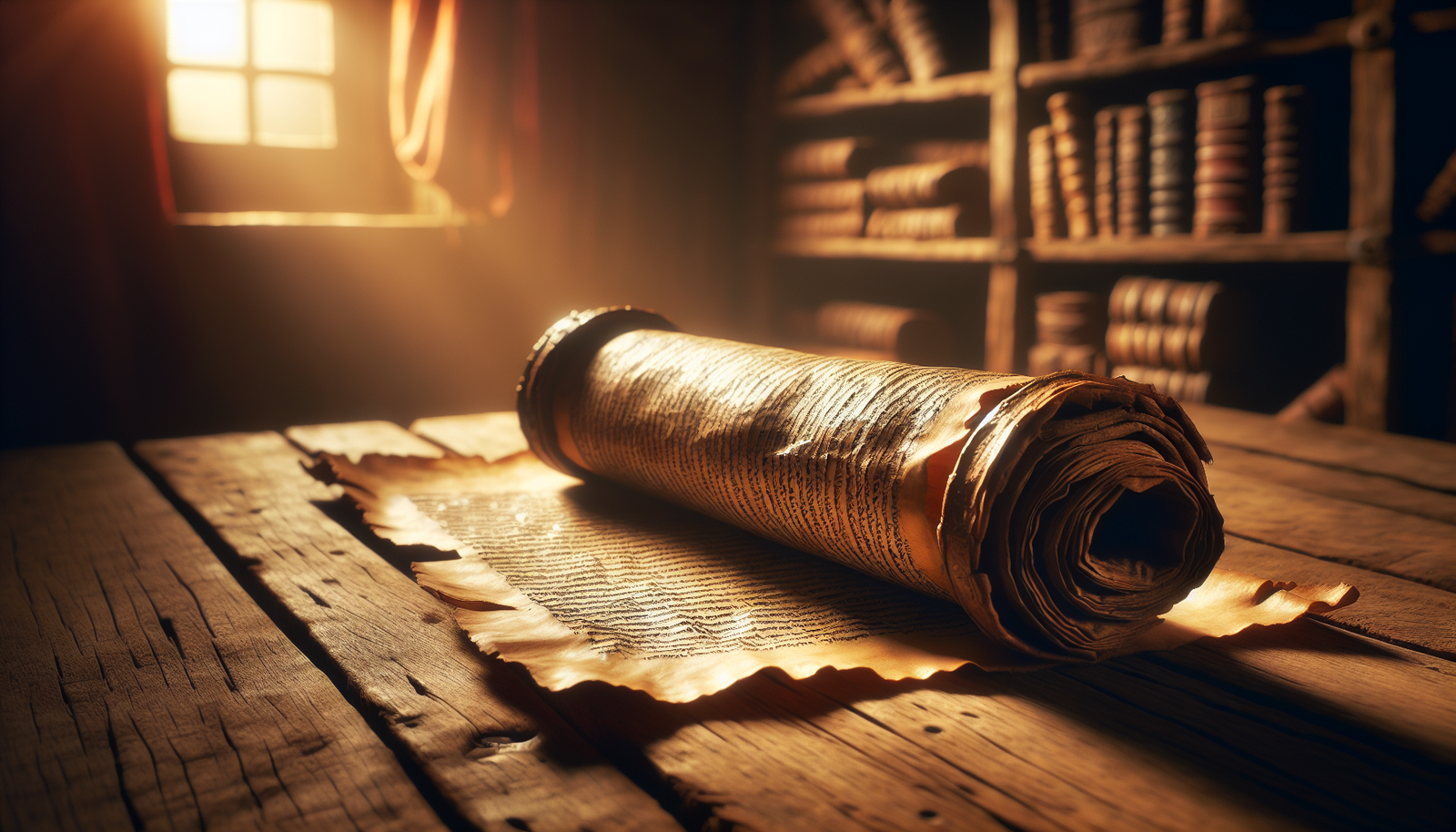What do you think life was like for a group of people living in the shadows of the Dead Sea, hidden away in the rugged landscape of Qumran? Imagine a community so steeped in austerity, dedicating their days to study and ritual, where every whispered word carried the weight of their beliefs. This is not just an intriguing story but a lens through which you can glimpse the daily rhythms and profound ideals of a sect that lived over two thousand years ago.

The Enigmatic World of Qumran
Nestled near the cliffs of the Dead Sea, Qumran was home to the Essenes—a Jewish sect often overshadowed by the more familiar Pharisees and Sadducees. The very essence of their existence seems almost cloaked in mystery, inviting whispers and wonder. But what secrets do the ruins hold? What describes their unique lifestyle shaped by a relentless search for purity and scholarly enlightenment?
A Journey Through History
To understand the Qumran community, it helps to sift through historical records and archaeological findings that paint a clearer picture of their austere existence. The Essenes, who are known for their rigorous moral code and isolationist tendencies, thought of themselves as the true heirs to the divine covenant. This self-identification anchored their beliefs and daily practices, nudging you toward the realization of how fundamentally they sought to separate themselves from the world around them.
The Discovery of the Dead Sea Scrolls
The remarkable serendipity of finding the Dead Sea Scrolls in 1947 kick-started a scholarly frenzy. Housed in ancient clay jars, these scrolls contained biblical texts, commentaries, and rules that reveal deep insights into the sect’s life. Imagine being an archaeologist, unearthing manuscripts that contain echoes of a vibrant past. The scrolls not only illuminate the Essenes’ theological world but also provide a critical glimpse into the religious landscape of Second Temple Judaism.
Understanding the Austerity of the Essenes
Living in such a barren landscape shaped the Essenes’ philosophy toward life and spirituality. Their commitment to austerity went beyond mere frugality; it was a statement against the excesses of the time. They rejected the luxuries of city life and chose instead a path that emphasized self-denial, communal living, and a shared dedication to scripture and study.
The Daily Routine: A Study in Contrast
Picture their daily life as an intricate dance with a rhythm set by sacred observance and study. Each day began with meticulous rituals—ritual washings to symbolize purity followed by communal prayers. The focus on scripture was not casual; it was central, a lifeline tethering them to their beliefs in the face of a tumultuous world.
| Daily Activity | Description |
|---|---|
| Morning Purity Rites | Ritual washing in natural springs—emphasis on cleanliness and spiritual readiness. |
| Communal Prayer | Joint prayers, reflecting their deep devotion to their faith. |
| Scriptural Study | Hours dedicated to the study of texts, interpreting the scriptures and commenting on them. |
| Evening Reflections | Time set aside for reflection and discussion on the day’s learnings. |
The Role of Scripture
For the Essenes, scripture was anything but static. Imagine each scroll alive with interpretation, analysis, and spiritual inquiry. The study of the Hebrew Bible formed the backbone of their beliefs and practices. The rule texts found among the Dead Sea Scrolls suggest that the Essenes maintained a rigorous educational program to ensure that every member understood their sacred texts—I mean, can you picture the intense discussions that might have arisen over a line of verse?
The Community as a Living Text
As you wander through the ruins of Qumran, it becomes clear that this community cherished written words that shed light on their daily life and practice. They aimed to embody their interpretations; thus, every action—from the food they consumed to the manner of their communal living—became a living testament to their beliefs.
Governance within the Community
Governance, ruled by communal consensus, played a crucial role in how the community functioned. The Manual of Discipline, a significant text among the Dead Sea Scrolls, outlines rules and expectations for the members, underscoring values of unity, discipline, and shared commitment. It certainly governed everything—from membership requirements to behavioral standards, ensuring everyone aligned with their lofty goals.
Leadership and Authority
At the heart of this structure was leadership, often perceived through a lens of divine appointment. Leaders—often referred to as “teachers of righteousness”—held a revered status akin to modern-day religious figures. Their authority derived not from wealth but from their scholarly accomplishments and perceived piety. Isn’t it fascinating how leadership can shift from prominence to humility, rooted in ethical and moral standards rather than opulence?
The Symbolism of Austerity
In a world driven by material desires and social status, the Essenes stood out remarkably. Their austere lifestyle was not only a rebellion against societal norms but also a reflection of their concept of holiness and purity. They aspired to be the light in a world perceived as engulfed in darkness. How does such an aspiration translate in a modern context, where self-indulgence often prevails?
The Impact of Community Connections
The bonds of camaraderie forged among members were significant, creating a protective circle against the outside world. Although they distanced themselves physically, emotionally, they remained intertwined—supporting one another through shared rituals and resolve. This glimmer of personal connection becomes emblematic of what communal life has always aspired to offer: support, understanding, and collective purpose.
Life Lessons from the Qumran Community
It’s easy to romanticize the life of ancient extremists hoping to withdraw from society, but there’s much more at play with the Essenes’ way of life. Beneath their austere exterior lay fundamental challenges that resonate through history, urging you to consider what it means to live with intention and integrity.
Finding Balance in Modern Life
In today’s fast-paced world, the essence of the Essenes offers a fresh perspective. Their commitment to study, discipline, and spiritual purity speaks to a universal human longing for meaning. Isn’t there a part of you that craves a break from the noise, a return to something more anchored?
Emphasizing Community
In those moments when the world feels heavy, the importance of community takes center stage. Reflecting on the Essenes’ lives prompts you to think about your connections—who uplifts you, shares knowledge, and stands beside you during spiritual inquiries?
Reassessing Material Desires
Consider, too, how the Essenes’ disdain for wealth and status might inform your own attitudes toward materialism. In an era laden with consumerism, simplicity can feel revolutionary. What meaningful steps could you take to simplify your own life, perhaps fostering a greater appreciation for relationships and experiences instead of things?
The Pursuit of Knowledge
The Essenes can also reignite your curiosity about the world. They serve as an invitation for you to engage with texts, societal critiques, and spiritual explorations. Is there a book that has long been on your shelf that you’ve yet to open? Perhaps now is the right time.

Concluding Thoughts
As you piece together the fragments of the Qumran community’s life, a broader tapestry emerges—one marked by a thirst for purity, discipline, and understanding in a vibrant and often tumultuous world. Their story isn’t merely a chapter of history; it speaks to the journey of seeking meaning, forging community, and maintaining conviction amid the trials of human existence.
Through the lens of Qumran, you’re prompted to reflect on how to live with intention and community in this modern age, converting echoes of the past into guiding principles for today. With every new understanding of the Essenes, the enormity of their legacy surfaces—a reminder that even in austerity, richness of spirit can thrive.
In this hustle of life, perhaps there’s a resonating truth from Qumran: that every day can be an opportunity, a fragment of the greater narrative, waiting for you to engage with it meaningfully.



